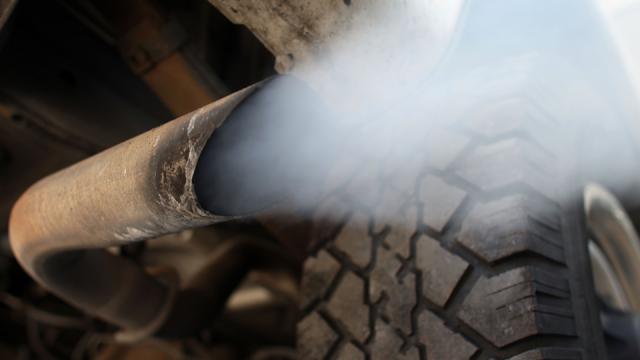
Washington State has emissions targets in place that it is not on track to meet. By 2020, we are to reduce overall emissions of greenhouse gases in this state to 1990 levels. But in fits and starts, the Washington government is now making an effort while others are attempting to stand in their way.
Early this year, Governor Jay Inslee proposed legislation that would form a Climate Legislative and Executive Workgroup (CLEW) to study the effectiveness per dollar of emissions reduction practices around the world, and then propose recommendations for Washington’s 2014 legislature to meet the goals set in 2008.
Activists petitioned, phone-banked, testified and agitated for approval of Inslee’s bill, and the bill passed. Four CLEW members were appointed, one by each party in the house and in the senate: Senator Doug Ericksen (R, 42nd District), Senator Kevin Ranker (D, 40th District), Representative Joe Fitzgibbon (D, 34th District), and Representative Shelly Short (R, 7th district). The Governor is the fifth, non-voting member.
The workgroup met twice monthly through the summer and fall, and hired a consultant, Science Applications International Corporation (SAIC), who confirmed that under current policy Washington would not meet its goals. The CLEW’s term is to conclude at the end of the year with three hearings for public comment on drafts of its recommendations (two of which have already taken place, in Seattle and Spokane) and a final document of its policy recommendations.
But as the 2013 deadline approaches, a predictable partisan conflict is manifesting. CLEW is to publish a draft and then hold a final hearing at the capitol building in Olympia on December 13 from 2pm to 5 pm. The draft’s publication was postponed once, as was the hearing, and environmental groups are scrambling to keep their members up-to-date on the latest details, and prepare for a hearing on an as yet unseen document.
The Olympian reports that in its most recent meeting, on December 6, Republicans called recommendations including a carbon cap premature, citing the potential cost.
When Inslee suggested that the Republicans were opposed to making recommendations, Representative Short replied: “What I really resent, Governor, is you intimating that we don’t care... I just really resent being put into a corner today, Governor.” After a short cool-off break, the meeting ended with the group agreeing to submit their suggestions by December 9.
According to Sasha Pollack, the Climate and Clean Energy campaign director at the Washington Environmental Council (WEC), her organization is anticipating the release of two reports, one from the Republicans and one from the Democrats. "So there'd be two minority reports,” she said.
The six major topics expected to appear in the Democratic proposal are itemized in a commenting guide provided by the WEC:
• an enforceable limit on climate pollution using a market-based approach;
• a switch from coal power to clean energy;
• clean transportation fuels;
• energy efficiency;
• research and development of new technology; and
• better transportation options for all.
Pollack anticipates that the Republican proposal will follow along the lines of, “'We need more time to study this, we don't have the numbers, it's going to be too expensive for the average Washingtonian to swallow.'” The CLEW was designed to research and present these recommendations, and then cease to exist.
But the Republican plan may be to propose a longer term for the workgroup, said Pollack. “They would like to continue studying, which is not an uncommon thing for them to say," she said. "It allows them to imply that they're still concerned and interested without doing anything.”
Pollack says that the first two hearings were well attended and fruitful: more than 800 people in total attended the hearings, with about 250 in Spokane, and 600 in Seattle. 86% of speakers in Spokane and 94% in Seattle were advocating for immediate climate action. She said that “the vast majority of the speakers were smart, committed and well-informed…. Overall, it was a pretty productive conversation and I think the members of the CLEW felt like their time was well spent.”
Public support for climate action, at the Olympia hearing and through written comments, is essential, Pollack says, because Governor Inslee needs to know that “we have his back, [by] showing support for his [and the Democrats’] policy suggestions, and giving him the support he needs to do whatever he can despite a not super-friendly legislature."
"We all know that time is of the essence and we need to move forward," added Pollack, "and if the only option we have, similar to what's been happening at the Federal level, is to go through the executive branch, we will try our damnedest to make sure that that happens, and support him in doing that.”
Governor Inslee needs more than support. He needs his constituents to set a more radical tone in this period of public comment. He is already doing the politically possible, which has included a letter to President Obama requesting scrutiny of coal export proposals, written jointly with Oregon Governor John Kitzhaber, and the formation in October of a climate alliance with California, Oregon and British Columbia called the Pacific Coast Collaborative (PCC).
But because fossil fuel money sits in the coffers of so many of our legislators, even in liberal Washington state, the political reality is one of endless, bad-faith study — and profitability as the ultimate measure of a climate policy’s value.
Five years after the original emissions goals were set, it shouldn’t take so much frustrating and repetitive effort to begin to comply. It’s time for Washingtonians to shout down our do-nothing legislators and set the record straight: the climate crisis is the most important matter we face, and the cost of action is nothing compared to the cost of inaction.
3 WAYS TO SHOW YOUR SUPPORT
- Log in to post comments















